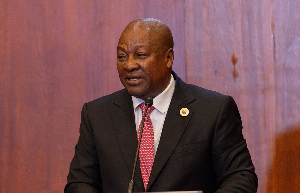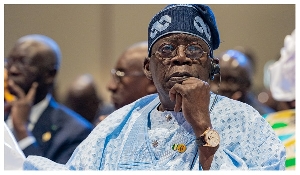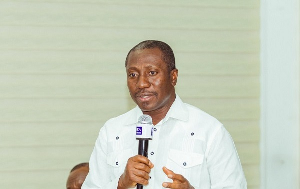Fashioning a Meaningful Political Balance
Ghana, undoubtedly, has come a long way since independence although the fact that it can do better in some areas is not denied. One such area is the political under-representation of women. Even with the best of intent or efforts to redress this imbalance, progress remains sketchy. On top of historical factors, aspects of Ghanaian society in terms of cultural and social distortions have not helped, to the point of questioning the logic of affirmative action alone or quotas. A meaningful political balance with women at the fore, as this article argues, is pivotal for Ghana to actualise the ‘much-needed’ next level of development.
The vision of an African renaissance seems far-fetched whilst remnants of the colonial past continue to disparage the continent’s political systems and structures. As always, women are left to burden the full blunt of this phenomenon. The problem is comparable with the ‘shift-shaping’ of a double-edge sword. A male-dominated political system, nonetheless, with its patriarchal social arrangements stands ‘against the grain’ of Africa’s matriarchal instincts. In its extreme, the elitist and macho way of doing things incites aggression, division and state failure to promote underdevelopment.
Political organisation, of course, does not take place in an abstract vacuum. Ghana, as a member of the global community, also works within a wider framework. The political gender gap, however, questions the integrity and impact of anything that emerges in this arena. Not surprising, women who make it politically find themselves being judged by male standards. Some, sadly, would even try to ‘out-do’ their counterparts in a further rebuff of their matriarchal underpinnings and personal effectiveness. As a result, countries that should be precise with the empowerment of women appear to connive with their repression.
The picture on the other edge of the sword is just as challenging. And as long as aspects of Ghanaian society continue to serve up a raw deal for women, nothing substantial is going to happen by way of development. Even more so, colonial mindsets or structures cannot be blamed for the backwardness ‘hatched-out’ as cultural beliefs and social practices. What does the politicisation of women signify amidst reports of defilement, the teenage sex trade, sex-for-jobs and other rights violations? Ghana, as a model of democracy in Africa, cannot afford to be blasé about these issues.
On a positive note, however, a whole ministry dedicated to gender, children and social protection counts for something. But this is not enough by itself. In the same way that Ghana reveres its queen-mothers, for example, at durbars, important gatherings or state functions, it has to be equally compelling on the political stage. Africa, in general, has to live-up to its own ancestral adage that likens a woman’s education to the education and liberation of a nation. On the basis of what Kwame Nkrumah was able to do on this front notwithstanding recent approaches like the 31st December Women’s Movement, Ghana is not short of inspiration.
The radar, politically, has to be precise as to where things stand for women. Moreover, this process cannot rule out social change and development. Affirmative action or quotas may help, but the political endgame means the radical overhaul of ideologies, attitudes and arrangements that stand in the way of women. In this light, Africa needs to admire and salute the prowess of Winnie Mandela, Nana Konadu Rawlings, Ellen Johnson Sirleaf, Joyce Banda and others. If Ghana, ultimately, wants to remain influential in the next level for the continent, fashioning a meaningful political balance that befits African womanhood goes without saying.
The writer is an educationalist, development strategist and consultant particularly known for his work in the areas of community development. Richmond, an advocator of racial justice, has operated at all levels. He is an accomplished and published writer, and has had articles in the Voice, Pride Magazine and The Northern Journal notwithstanding his contribution in the book Black Families in Britain as the Site of Struggle, published by Manchester University Press. In June 2005 Richmond, assisted by a group of friends won a landmark ‘race’ discrimination case against Serco. He sports post-graduate qualifications in management and teaching including an MBA from the Bradford School of Management and also enjoys a successful career in the music business.
Opinions of Wednesday, 30 January 2013
Columnist: Quarshie, Richmond














